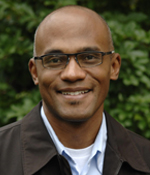
Could it depend on the personal investment of neighborhood residents?
Delegates to CLP 2023 will be introduced to the ‘fourth revolution’ in community mental health care on the meeting’s first day (Thursday).

Plenary speaker Martin Summers, PhD, will discuss a care model of promoting and preserving mental health by intervening in the lives of emotionally troubled and mentally distressed individuals before their conditions warrant hospitalization.
Professor Summers, Department of History and African and African Diaspora Studies Program, Department of History, Boston College, will present The Fourth Revolution: Community Mental Healthcare and the Politics of Race in the Twentieth-Century United States.
Community mental health care advocates in post-war US argued that the psychiatric profession’s goal should be to promote such a model, he says.
“Central to this model of care was the idea of citizen participation. Rather than comprehensive mental health care policies being developed and implemented solely by state officials and mental health experts, decision-making processes about the care of people with mental or emotional disorders should involve ordinary lay people who had a stake in both the welfare of the mentally ill and the improvement or preservation of the quality of life in their communities.
“The success of community mental health care centers, especially in African-American neighborhoods, their advocates argued, depended upon the personal investment of neighborhood residents in those centers. Giving residents a voice in how these centers were planned and operated—rather than delivering care in a top-down, paternalistic manner—was essential to engaging a population that distrusted white medical professionals.
“But community mental health care also brought with it a host of challenges, from nimbyism and struggles over community control to bureaucratic debilitation and government disinvestment.”
The professor’s presentation will explore the history of community mental health care and how it reflects the relationship African-Americans have had historically with Psychiatry—characterized by skepticism and antipathy, as well as by guarded optimism.
Professor Summers’ particular research and teaching interests are in race, gender, sexuality, and medicine. He is the author of Manliness and Its Discontents: The Black Middle Class and the Transformation of Masculinity, 1900 – 1930 and co-editor of Precarious Prescriptions: Contested Histories of Race and Health in North America. His most recent book, Madness in the City of Magnificent Intentions: A History of Race and Mental Illness in the Nation’s Capital, received the Cheiron Society’s prize for outstanding monograph in the history of behavioral and social sciences.
Professor Summers is currently working on a book, Inner City Blues: African American Mental Health and the ‘Urban Crisis’ in Twentieth-Century Chicago, which examines how social scientists, psychiatrists and psychiatric social workers, government officials, and community activists understood the relationship between urbanization and mental illness and consequently sought to address the mental health care needs of African-Americans in the so-called ghetto.
CLP 2023 on the theme Integrating Care and Evidence Across the Lifespan is scheduled for November 8-11 at the JW Marriott hotel in Austin, Texas. Registration will open in July but you can book your hotel room already here.